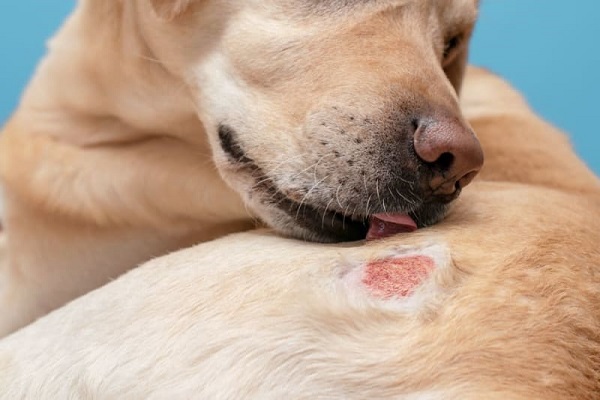
Just like humans, dogs can suffer from a variety of allergies, and one of the most common manifestations is skin allergies. Itchy, irritated skin can not only make your furry friend miserable but also affect their overall quality of life. In this article, we will explore the symptoms of dog skin allergies and offer valuable insights into how to treat and manage this common condition.
Common Symptoms of Dog Skin Allergies
Excessive Scratching: One of the most noticeable signs of a skin allergy in dogs is incessant scratching. If your dog is scratching excessively, particularly in specific areas like their ears, paws, or belly, it may be a clear indication of an allergy.
Chewing and Licking: Dogs often try to alleviate itching by chewing or licking affected areas. This can lead to hot spots or open sores, making the condition even more uncomfortable.
Redness and Irritation: Allergic reactions can cause redness, swelling, and irritation of the skin. Look for changes in the color and texture of your dog’s skin.
Hair Loss: Frequent scratching and chewing can result in hair loss, leading to patchy or bald spots on your dog’s coat.
Ear Infections: Dogs with skin allergies may also develop ear infections, which can be identified by redness, discharge, and a foul odor in the ears.
Skin Discharge: In some cases, skin allergies can lead to oozing or discharge from the affected areas, indicating an infection or secondary skin issue.
Inflamed Paws: Allergies can affect the paws, causing them to become red, swollen, and itchy. Your dog may lick or chew their paws excessively.
Secondary Skin Infections: Persistent scratching and open sores can make your dog’s skin vulnerable to bacterial or fungal infections, which may require additional treatment.
Common Causes of Dog Skin Allergies
Flea Allergy Dermatitis (FAD): Flea bites can trigger severe allergic reactions in some dogs, leading to intense itching and skin irritation.
Food Allergies: Dogs can develop allergies to certain ingredients in their diet, such as proteins (e.g., chicken, beef), grains, or additives.
Environmental Allergens: Pollen, dust mites, mold, and other environmental allergens can cause skin allergies in dogs, leading to symptoms like itching and redness.
Contact Allergies: Some dogs may be sensitive to certain materials, such as fabrics, cleaning products, or plants, leading to skin reactions upon contact.
Treatment and Management
Treating and managing dog skin allergies often requires a multi-faceted approach:
Consult Your Veterinarian: If you suspect your dog has a skin allergy, consult your veterinarian. They can perform tests to identify the specific allergen responsible for the reaction.
Allergen Avoidance: If the allergen can be identified, try to minimize your dog’s exposure. For instance, if it’s a food allergy, switch to a hypoallergenic diet. If it’s an environmental allergen, take steps to reduce exposure, such as using air purifiers or keeping your dog indoors during peak pollen seasons.
Medications: Your veterinarian may prescribe medications to alleviate itching and inflammation. These can include antihistamines, corticosteroids, or immune-modulating drugs.
Topical Treatments: Shampoos, sprays, or ointments containing soothing and anti-inflammatory ingredients can help provide relief and promote healing.
Flea Control: If your dog’s allergy is triggered by fleas, maintaining a strict flea control regimen is essential.
Regular Grooming: Regular grooming can help remove allergens from your dog’s coat and skin. Be gentle to avoid further irritation.
Supplements: Omega-3 fatty acids and other supplements may help support skin health and reduce inflammation.
Allergy Shots (Immunotherapy): In severe cases or when other treatments don’t work, your vet may recommend allergy shots (immunotherapy) to desensitize your dog to specific allergens.
Conclusion
Skin allergies can significantly impact your dog’s comfort and happiness. Recognizing the symptoms and seeking prompt treatment and management from your veterinarian can help improve your dog’s quality of life. With the right care and support, your furry companion can enjoy itch-free days and lead a healthy, happy life.
Related Articles & Free Email Newsletter Sign Up
Affenpinscher Dogs Have a Distinctive Appearance and a Playful Personality
How to Nurture a Confident and Well-Adjusted Puppy in the First 12 Weeks
Understanding Why Dogs Jump on People and How to Correct the Behavior




Comment here